
David Baltimore is an American biologist, university administrator, and 1975 Nobel laureate in Physiology or Medicine. He is a professor of biology at the California Institute of Technology (Caltech), where he served as president from 1997 to 2006. He founded the Whitehead Institute and directed it from 1982 to 1990. In 2008, he served as president of the American Association for the Advancement of Science.
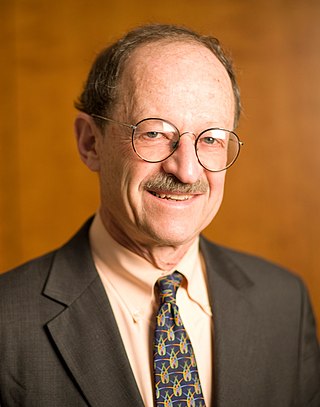
Harold Eliot Varmus is an American Nobel Prize-winning scientist. He is currently the Lewis Thomas University Professor of Medicine at Weill Cornell Medicine and a senior associate at the New York Genome Center.
The National Cancer Institute (NCI) coordinates the United States National Cancer Program and is part of the National Institutes of Health (NIH), which is one of eleven agencies that are part of the U.S. Department of Health and Human Services. The NCI conducts and supports research, training, health information dissemination, and other activities related to the causes, prevention, diagnosis, and treatment of cancer; the supportive care of cancer patients and their families; and cancer survivorship.

The Wistar Institute is an independent, nonprofit research institution in biomedical science with special focuses in oncology, immunology, infectious disease, and vaccine research. Located on Spruce Street in the University City section of Philadelphia, Wistar was founded in 1892 as a nonprofit institution to focus on biomedical research and training.
E. Premkumar Reddy is a molecular biologist specialising in molecular oncology. He is the Director of Experimental Cancer Therapeutics program and Professor in the Departments of Oncological Sciences and Structural and Chemical Biology at the Mount Sinai School of Medicine.
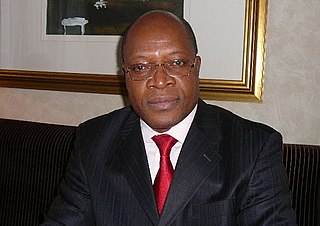
Dr. Oscar Kashala Lukumuena is a Boston-based scientist, clinical researcher, university professor, and senior executive in the biopharmaceutical industry in the United States of America (USA). He is a politician in the Democratic Republic of the Congo and was a reformer candidate in the 2006 presidential election and 2011 presidential elections.
Carlos Martínez Alonso, was born in Villasimpliz, in the province of León, on January 9, 1950. In 1974 he obtained a chemistry degree from the Universidad Complutense of Madrid. Four years later, in 1978, he obtained a Ph.D. in immunology by the same university. He was appointed President of the Spanish National Research Council (CSIC) from 2004 to 2008, and Secretary of State for Research in the Ministry of Science and Innovation from early 2008 to December 2009.

Edison T. Liu is an American chemist who is the former president and CEO of The Jackson Laboratory, and the former director of its NCI-designated Cancer Center (2012-2021). Before joining The Jackson Laboratory, he was the founding executive director of the Genome Institute of Singapore (GIS), chairman of the board of the Health Sciences Authority, and president of the Human Genome Organization (HUGO) (2007-2013). As the executive director of the GIS, he brought the institution to international prominence as one of the most productive genomics institutions in the world.
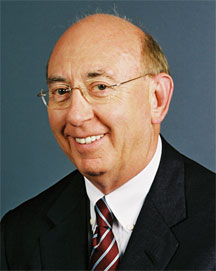
John E. Niederhuber was the 13th director of the National Cancer Institute (NCI), from 2006 until July, 2010, succeeding Andrew von Eschenbach, who went on to become a director at biotechnology firm BioTime. A nationally renowned surgeon and researcher, Dr. Niederhuber has dedicated his four-decade career to the treatment and study of cancer - as a professor, cancer center director, National Cancer Advisory Board chair, external advisor to the NCI, grant reviewer, and laboratory investigator supported by NCI and the National Institutes of Health. He is now Executive Vice President/CEO Inova Translational Medicine Institute and Inova Health System and co-director, Johns Hopkins Clinical Research Network.

George Quentin Daley is the Dean of the Faculty of Medicine, Caroline Shields Walker Professor of Medicine, and Professor of Biological Chemistry and Molecular Pharmacology at Harvard Medical School. He was formerly the Robert A. Stranahan Professor of Pediatrics at Harvard Medical School, Director of the Stem Cell Transplantation Program at Boston Children's Hospital, and an investigator of the Howard Hughes Medical Institute, Associate Director of Children's Stem Cell Program, a member of the Executive Committee of the Harvard Stem Cell Institute. He is a past president of the International Society for Stem Cell Research (2007–2008).

Donald E. Ingber is an American cell biologist and bioengineer. He is the founding director of the Wyss Institute for Biologically Inspired Engineering at Harvard University, the Judah Folkman Professor of Vascular Biology at Harvard Medical School and Boston Children's Hospital, and Professor of Bioengineering at the Harvard John A. Paulson School of Engineering and Applied Sciences. He is also a member of the American Institute for Medical and Biological Engineering, the National Academy of Engineering, the National Academy of Medicine, the National Academy of Inventors, and the American Academy of Arts and Sciences.

The UNC Lineberger Comprehensive Cancer Center is a cancer research and treatment center at the University of North Carolina at Chapel Hill. One of 52 National Cancer Institute-designated comprehensive cancer centers in the United States, its clinical base is the N.C. Cancer Hospital, part of the UNC Health Care system. UNC Lineberger is the only public NCI-designated comprehensive cancer center in the state of North Carolina. The current director is H. Shelton Earp III who succeeded current NCI director Norman Sharpless.

Lauren V. Wood is an American allergist, immunologist, and staff physician at the National Cancer Institute (NCI) at the National Institutes of Health (NIH) in Bethesda, Maryland, where she has served as a principal investigator. She is known for conducting studies of vaccines for cancer, Human papillomavirus (HPV), Hepatitis C, and HIV especially for use with children, teens and young adults. She holds the rank of captain in the U.S. Public Health Service (PHS).
Arnold B. Rabson is an American physician-scientist. He is the director of the Child Health Institute of New Jersey and the Laura Gallagher Chair of Developmental Biology at Robert Wood Johnson Medical School. Rabson is a Fellow of the American Association for the Advancement of Science.
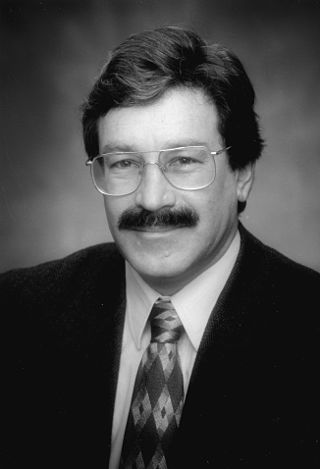
Richard D. Klausner is an American scientist who served as the 11th director of the National Cancer Institute of the United States.

Gerald T. Keusch is an American physician-scientist and academic administrator. Keusch is the associate provost for global health at Boston University Medical Campus and a professor of international health and medicine at Boston University School of Public Health. He was the director of John E. Fogarty International Center and the associate director of international research at the National Institutes of Health from 1998 to 2003.

Mary F. Kearney is an American biologist. She is a senior scientist and head of the translational research section in the HIV dynamics and replication program at the National Cancer Institute.
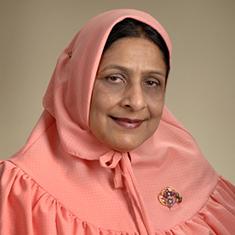
Munira Adnan Basrai is an American geneticist researching genome stability and cell cycle regulation in yeast and human cancers. She is a senior investigator at the National Cancer Institute.

Wei-Shau Hu is an American geneticist specialized in HIV research, retroviral recombination, RNA packaging, and virus assembly. She is a senior investigator at the National Cancer Institute and head of the viral recombination section. She was an associate professor at West Virginia University.
Andrea Califano is an American biologist. He is a Clyde and Helen Wu professor of Chemical and Systems Biology at Columbia University Irving Medical Center. He also has roles in the Departments of Biochemistry & Molecular Biophysics, Biomedical Informatics, and Medicine.















